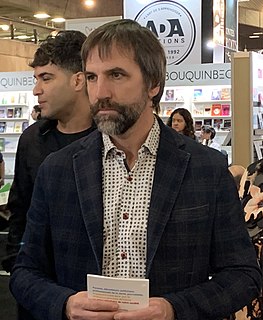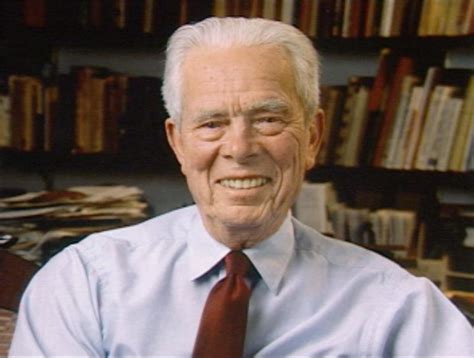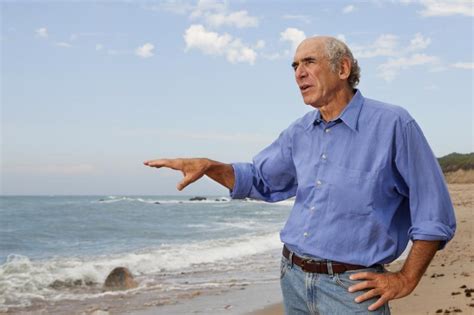Top 261 Greenhouse Quotes & Sayings - Page 5
Explore popular Greenhouse quotes.
Last updated on December 18, 2024.
Some time ago we discovered the carbon cycle - a long-term set of chemical reactions that govern climates based on how much carbon is free in the atmosphere. At that point, it became clear that humans were affecting our environments far more profoundly than we realized. By releasing so much carbon and greenhouse gas into the environment, we're making long-term changes to every aspect of the natural world.
CO2 is a minor player in the total system, and human CO2 emissions are insignificant compared to total natural greenhouse gas emissions. Therefore, lowering human CO2 emissions will have no measurable effect on climate, and continued CO2 emissions will have little or no effect on future temperature....While controlling CO2 emissions from burning fossil fuels may have some beneficial effects on air quality, it will have no measurable effect on climate, but great detrimental effects on the economy and our standard of living.
The models that have been constructed agree that when, as has been predicted, the level of carbon dioxide or its equivalent in other greenhouse gases doubles from pre-Industrial Revolution concentrations, the global average temperature will increase, and that the increase will be 1.5 to 4.5 degrees Celsius or 3 to 8 degrees Fahrenheit... In Dallas, for instance, a doubled level of carbon dioxide and other gases like methane, would increase the number of days a year with temperatures above 100 degrees from 19 to 78 each year.
Bopha, Sandy, floods in Pakistan, droughts in China… How many reports from the likes of the World Bank, NASA and the International Energy Agency will it take? How many preventable catastrophes until our leaders realize that climate change will not be solved by nice speeches and empty promises? Countries like Canada and the U.S. have promised to reduce their greenhouse gas pollution and provide adequate financial support for developing countries, they have so far failed on both counts.
I must say that when I first learned of the existence of the Australian Greenhouse Office, I assumed it was responsible for supplying tomatoes to the Parliament House kitchen. But, no, as I soon learnt as industry minister, it was in fact a government funded redoubt of veritable soldiers in a war against carbon dioxide. The zealotry and obsessive passion of these warriors in the battle against the apparent evils of carbon dioxide remains a curiosity to me. After fighting these people for three years as industry minister, I really did wish they would just go away and grow tomatoes.
A lot of what is done by the climate lobby is anti-science. But there is some science behind it. Like, there are greenhouse gases, and they do contribute to warming. But if you look at the last, say, 160 years, the first 80 of that period, they went up about four-tenths of a degree. And now, the second 80 that CO2 has increased by, what, 30 percent or something, it's gone up five-tenths of a degree. And there's been in the last 30 or 40 years, there's been no real increase in storms or bad weather.
...trying to predict whether global warming will moderate the next ice age is not only impossible but irrelevant. It doesn't help us get through the next few centuries. And one can only imagine our future, shivering, ice age descendants cursing us for leaving them no fossil fuel to create a global warming "greenhouse" effect when one is really needed.
Extreme weather like the droughts in Russia, China and Brazil and the flooding in Pakistan and Australia [in 2010] have contributed to a level of food price volatility we haven't seen since the oil crisisof 40 years ago. Unfortunately, this could be just a taste of things to come because in the next few decades the build-up of greenhouse gases already in the atmosphere could greatly increase the risk of droughts, flooding, pest infestation and water scarcity for agriculture systems already under tremendous stress.
It would be rash to conclude that, on balance, the environment of the globe as a whole is either deteriorating or improving, or that the survival of the societies we know depends upon filling a simple set of prescriptions. It is all too complex and dynamic, whether it involves managing greenhouse gases or Nile snails... The future condition of the globe's interlocking natural and social systems depends more on human behavior than on the further investigation of natural processes, however desirable that may be.
If Africa is left behind, she is going to continue pumping greenhouse gases into the atmosphere, especially carbon. She's going to continue logging the forests, she's going to continue burning charcoal, she is going to continue practicing agricultural activities that destroy the environment, and sooner or later Africa's problem will become a global problem.
Both rich and poor nations have a common stake in policies that put the globe on a sustainable development path. The conflict is less between poor and rich countries than between the broad interests of people and the narrow interests of extractive industries. We need to find our way towards some kind of global regime that reduces emissions of the greenhouse gases, but well-off nations need to transfer the technology to make this possible, rather than viewing this shift as one more opportunity for private industry to profit.
I think the mother of all arguments against eating meat now is the climate change argument. Methane is a much more powerful greenhouse gas than carbon dioxide and when we eat meat we wipe away many of the good things that we do when we try to create greener and more sustainable practices in the rest of our lives. So if you add the concern for climate change with other concerns that were there. I think the case for vegetarianism is pretty overwhelming.
On Earth Day I made a commitment to reduce our emissions of greenhouse gases to 1990 levels by the year 2000. And I asked for a blueprint on how to achieve this goal. In concert with all other nations, we simply must halt global warming. It is a threat to our health, to our ecology, and to our economy. I know that the precise magnitude and patterns of climate change cannot be fully predicted. But global warming clearly is a growing, long-term threat with profound consequences. And make no mistake about it, it will take decades to reverse.
Geologists and paleo-climatologists know that in the past the Earth's temperature has been substantially warmer than it is today, and that this warming has occurred under purely natural circumstances. Until we can say precisely how much of the current global warming and greenhouse gas increase is the result of this normal temperature cycle, we will not be able to measure how much human activity has added to this natural trend, nor will we be able to predict whether there will be any lasting negative effects.
The unthinkable is that we're distorting this atmospheric balance. We're shifting the chemical balance so that we have more poisons in the atmosphere - ozones and acid rain on ground level - while we're also changing the thermal climate of the earth through the greenhouse effect and - get this - simultaneously causing destruction of our primary filter of ultraviolet light. It's incredible. Talk about the national-debt crisis - we're piling up debts in the atmosphere, and the piper will want to be paid.
Soils could also be giving up their carbon stores: evidence emerged in 2005 that a vast expanse of western Siberia was undergoing an unprecedented thaw. The region, the largest frozen peat bog in the world, had begun to melt for the first time since it formed 11,000 years ago. Scientists believe the bog could begin to release billions of tonnes of methane locked up in the soils, a greenhouse gas 20 times more potent than carbon dioxide. The World Meteorological Organisation recently reported the largest annual rise of methane levels in the atmosphere for a decade.
There'll come a time when airplanes are much more efficient when it comes to producing lower levels of greenhouse gas emissions, there'll come a time when we'll be able to offset those emissions much more effectively than we do now. But alas at the moment, flying airplanes is really one of the least defensible things that we do and it's one of the things that I indulge in quite frequently, alas.
Global warming results not from the emission of greenhouse gases into the atmosphere, but from an unusually high level of solar radiation and a lengthy - almost throughout the last century - growth in its intensity. It is no secret that when they go up, temperatures in the world's oceans trigger the emission of large amounts of carbon dioxide into the atmosphere. So the common view that man's industrial activity is a deciding factor in global warming has emerged from a misinterpretation of cause and effect relations.
Increasingly, our leaders must deal with dangers that threaten the entire world, where an understanding of those dangers and the possible solutions depends on a good grasp of science. The ozone layer, the greenhouse effect, acid rain, questions of diet and heredity. All require scientific literacy. Can Americans choose the proper leaders and support the proper programs if they themselves are scientifically illiterate? The whole premise of democracy is that it is safe to leave important questions to the court of public opinion - but is it safe to leave them to the court of public ignorance?
We've continued progress in the six months since Trump got elected, and the good thing about what we're doing is that success begets success. As we bring down greenhouse gases, for example, we've closed half of the coal-fired power plants in the country in recent years. There's more impetus to try to close the other half because you can see that it is working. So, you know, I had hoped that Trump would not do that, and it doesn't make any sense to me, but regardless, it is not as cataclysmic as it could be.
The Christian is in a different position from other people who are trying to be good. They hope, by being good, to please God if there is one; or — if they think there is not — at least they hope to deserve approval from good men. But the Christian thinks any good he does comes from the Christ-life inside him. He does not think God will love us because we are good, but that God will make us good because He loves us; just as the roof of a greenhouse does not attract the sun because it is bright, but becomes bright because the sun shines on it.



















